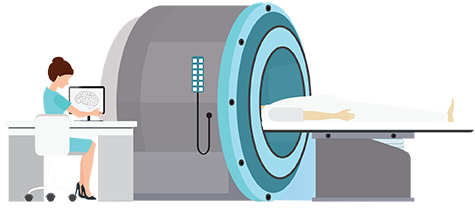

Online courses are a great option for working professionals who want to advance in their career, but don’t want to disrupt their current positions or income streams. To find out more about radiology programs online, check out our online radiology schools resource. Find out how to contact schools offering online radiology degree programs and read our articles about what its like to get an education online.
Most radiologic technologists choose to specialize in particular procedures or sub-categories within the field of radiology. Becoming certified to perform specific procedures will make you a more desirable job candidate and will increase your radiology salary potential. Learn more about radiology specializations and the radiology courses, degree programs, and certificates available.
The curriculum listed below assumes that you have already completed an associate degree. Programs for a radiology bachelor’s degree usually takes one of two paths:
Some programs offer a hybrid of the two. We’ve searched several radiology bachelor’s degree programs; the following curriculum is a fair assessment of the radiology courses you can expect from a bachelor’s program that incorporates both management and advanced study of the more common procedures:
For further reading, jump to our radiology degree page for FAQ’s on the different degree programs and lists of schools offering radiology classes and degree programs of your choice.
Typically, radiology degree programs require that you take basic courses in medical practices such as medical terminology, medical ethics, and patient record management. In addition to the core medical training, you will also take a series of radiology courses designed to get you acquainted with the fundamentals of radiologic sciences and machine operation. To give you an idea of what to expect, here is a sample of the curriculum that is common to many radiology programs: